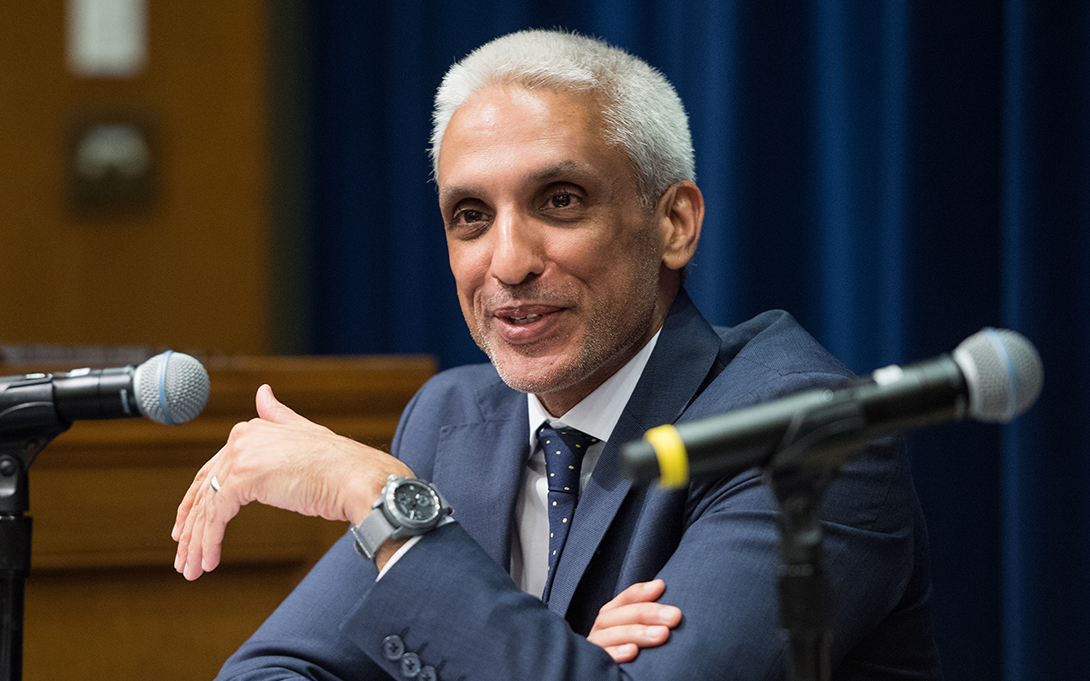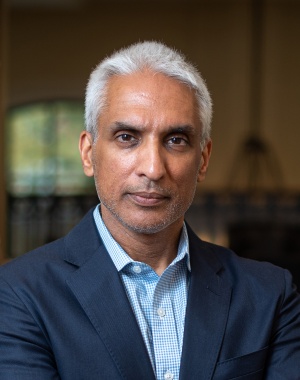
After the fall of Kabul to the Taliban following the withdrawal of the U.S. military, numerous media outlets turned to Javed Ali, associate professor of practice, for expertise, explanations, and analysis of the situation in Afghanistan.
"I would argue that there were a series of cascading errors that all contributed to the rapid fall of Kabul. But as things were developing in the summer and it was clear that the Taliban had momentum on its side on the battlefield and was cutting deals with tribes and local militias, why policymakers and military commanders in Washington didn't understand that and adjust our response and posture, that is something that is very troubling to me," Ali told Fox 2 Detroit. "There's just a lot of questions on the reality of what was happening in front of our eyes versus the decisions that were being made in Washington and then on the ground in Afghanistan."
Ali explained to Fox 2 Detroit what he would've changed in the U.S. strategy.
"At least explore the option of leaving a small counterterrorism force in place like we do in other places in the world," he said.
He elaborated on his thoughts for USA Today.
"I would have to believe that... somewhere along the way people proposed some interim option – like a small counterterrorism or special operations presence on the ground that aligns with our vital national security interests,” Ali explained. “To me, it seems really surprising that we weren't even willing to do that. Now was that a policy decision? Or was it operational or political? Those are all really important questions.”
KNX In Depth asked Ali what will happen next for Afghanistan. Ali is unsure, but made a few predictions.
"There’s no clear answer right now. There is the possibility of a resurgent Al-Qaeda or other jihadist groups that may wish to attack either U.S. interest abroad or worst case scenario, launch another attack directly into the United States," he said. "The risk seems significant, but whether an actual threat will manifest, that it is just too early to tell right now. But the risks appear to have increased."
Ali commented on how he thinks the Taliban will rule.
"I think in the short term the Taliban likely will or could rein in fighters, but in the long term, it’s probably more likely that they will try to implement a form of rule that they are comfortable and familiar with from 20 years ago," he told Newsy.
In an op-ed for Detroit News, Ali emphasized that Afghanistan's future is unclear.
"In the aftermath of these stunning developments, hoping for a more moderate and tolerant Taliban may be an unlikely expectation, but the United States and West should use what little leverage remains to deliver strong messages to the group about its conduct," he wrote. "The Taliban now faces the risks and pressure going from insurgent group to ruling power and should it stumble along that path and make the same mistakes as it did 25 years ago, this could set the conditions for its eventual downfall. In the meantime, the Afghan people are facing a return to the past and the prospects for a dramatically different future."
You can read and hear the news items featuring Ali below:
- Air Force veteran fears for Afghan nationals as Taliban takes over Afghanistan, Fox 2 Detroit, August 16, 2021
- What the fall of Kabul means for Afghanistan, Taliban, Detroit News, August 16, 2021
- What the Taliban takeover of Afghanistan means for re-igniting the war on terrorism, KNX In Depth, August 17, 2021
- How did Afghanistan end this way? The finger-pointing begins, USA Today, August 18, 2021
- Could the US have left Afghanistan without chaos, Taliban takeover?, Fox 2 Detroit, August 19, 2021
- First signs of how Taliban will rule, Newsy, August 19, 2020
